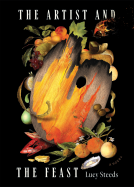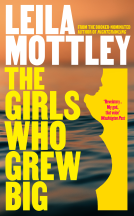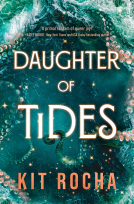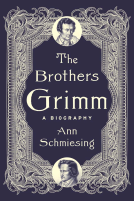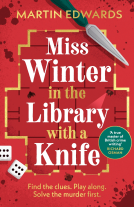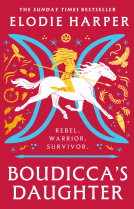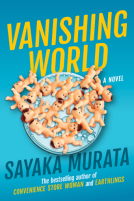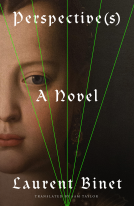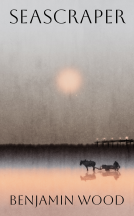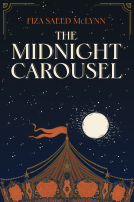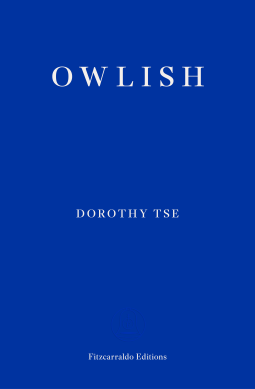
Owlish
by Dorothy Tse; translated by Natascha Bruce
This title was previously available on NetGalley and is now archived.
Send NetGalley books directly to your Kindle or Kindle app
1
To read on a Kindle or Kindle app, please add kindle@netgalley.com as an approved email address to receive files in your Amazon account. Click here for step-by-step instructions.
2
Also find your Kindle email address within your Amazon account, and enter it here.
Pub Date Feb 23 2023 | Archive Date Jan 30 2023
Talking about this book? Use #Owlish #NetGalley. More hashtag tips!
Description
In the mountainous city of Nevers, there lives a professor of literature called Q. He has a dull marriage and a lacklustre career, but also a scrumptious collection of antique dolls locked away in his cupboard. And soon Q lands his crowning acquisition: a life-sized ballerina named Aliss who has tantalizingly sprung to life. Guided by his mysterious friend Owlish and inspired by an inexplicably familiar painting, Q embarks on an all-consuming love affair with Aliss, oblivious to the sinister forces encroaching on his city and the protests spreading across the university that have left his classrooms all but empty. A deliciously dark subversion of the fairy-tale form, Dorothy Tse’s extraordinary debut novel is a boldly inventive exploration of life under oppressive regimes and an urgent warning against the insidious perils of apathy and indifference.
For fans of: Bae Suah's Untold Day and Night, Camilla Grudova's Children of Paradise and Helen Oyememi's Peaces.
Advance Praise
'Tse joins the ranks of artists currently remaking the world, from Yoko Tawada to César Aira.'
— Joyelle McSweeney, author of Toxicon and Arachne
'Tse joins the ranks of artists currently remaking the world, from Yoko Tawada to César Aira.'
— Joyelle McSweeney, author of Toxicon and Arachne
Available Editions
| EDITION | Paperback |
| ISBN | 9781804270349 |
| PRICE | £13.99 (GBP) |
| PAGES | 224 |
Featured Reviews
i read this one super quickly (within the span of a couple of hours, perhaps even a little less than that), but i still highly enjoyed it. it kind of reminded me of wong kar-wai’s films, in a way, and also made me think of kazuo ishiguro’s klara and the sun, even if the subject matter is slightly different in this one. the social commentary is also a pretty significant topic here — and i think tse excelled at weaving a direct critique of chinese policies over hong kong & the legacy of colonialism with its more fantastical aspects. overall, a very pleasant surprise.
 Reviewer 876149
Reviewer 876149
I’ve been looking forward to reading Dorothy Tse’s debut novel for some time. Tse’s an acclaimed, Hong Kong writer whose award-winning poems and short stories often feature alternative versions of Hong Kong, fantastical yet grounded in contemporary reality; frequently boasting uprooted characters who may be nameless or known solely by their initials, their experiences shaped by grotesque or macabre incidents. Her novel occupies similar territory, building on the fascination with transformations and metamorphoses detectable in much of her earlier fiction - tracing back to her interest in fairy tales and the offbeat or surrealistic writing of authors like Xi Xi, Bruno Schulz and Walter Benjamin.
Tse’s story is set in the fictional Nevers – a name that recalls the internment camp where Walter Benjamin was held after the Nazi occupation of France. Like that camp Nevers is a sealed area, its closed borders separating the inhabitants from the outside world. Tse’s depiction of Nevers is a thinly-veiled, stand-in for Hong Kong and its features will be familiar to anyone who’s spent time there or knows its history, her descriptions of Nevers's city centre with its tall buildings and laser light shows are a perfect match for the view over Hong Kong Island at night. Tse’s Nevers was once colonised by the Western Valerians whose language dominated its elite and its educational centres but now it’s been handed back to the “motherland” Ksana which has replaced Valerian and the local Southern (Cantonese) language with its own. At the centre of Tse’s narrative are a low-level, floundering, middle-aged academic Professor Q, his outwardly-ordered wife Maria a high-ranking civil servant and Aliss a life-size, music-box ballerina. Their intertwining experiences form the bulk of Tse’s dream-like, enigmatic exploration of political upheaval, identity and self-delusion.
Professor Q and Maria seem settled, a decent apartment, sufficient finance, and for Q the changing Nevers remains a place suffused with “sunshine, dusty glass and the smell of bank notes.” However, Q has a secret, an erotic obsession with female dolls and automata that he indulges whenever he’s alone. But slowly Q’s world is upturned, there are ominous signs and disturbing symbols all around him, a bizarre painting that arrives at his office from an anonymous sender, students disappearing from his lectures, and the weird, underground auction that brings him to Aliss. Meanwhile the rigidly-organised Maria is unnerved by her office rapidly becoming a disturbing site of unexplained disappearances and hints of an appalling fate for the future Nevers.
For the most part, I was quite caught up in this, partly because of my own links to Hong Kong, enjoying its moments of wry humour and absurdist passages. Using fantasy to address political concerns, particularly in contexts where these concerns can’t be directly addressed, is a well-worn tradition from Lao She’s Cat Country onwards, so it’s probably not surprising that this reminded me so strongly of aspects of Yan Ge’s Strange Beasts of China: another recent book indirectly critiquing China’s authoritarian policies. Tse is explicitly building on her own involvement in Hong Kong’s Umbrella Movement here. Woven into Tse’s novel are strands from a variety of forms from fairy tale and allegory to Greek myth, echoes of Pygmalion and Galatea jostling with strands from Hoffman’s “The Sandman” albeit with an unexpected, grubbily-Nabokovian tinge. In many ways the result’s fascinating and inventive but I also found it a little slippery and sometimes quite heavy-handed, particularly in Tse’s more anarchic closing sections. And I’m not entirely convinced by Tse’s conclusion. But despite my reservations I still think it’s very much worth reading particularly for fans of writers like Yoko Tawada or Camilla Grudova. Translated here by Natascha Bruce.
Gorgeous, lush, dreamy little story that transported me fully and didn't let go until the very end. I loved losing myself in this.
Owlish is extremely abstract and overall a very bizarre read, but I'm absolutely intrigued. I'd definitely read this book again, and look forward to reading other people's thoughts on it.
The main protagonist, Professor Q, is oddly likeable to begin with but as the story progresses and his sanity slowly seems to ebb away, he becomes more complex and I definitely found myself torn between dislike and pity. His bizzarely romantic and sexual feelings towards dolls, in particular a dancing ballerina named Aliss, is repulsive but, at the same time, fascinating.
The majority of the book seems shrouded in a dream-like haze with short glimpses of reality, which is unusual but really enjoyable. Absolutely recommend this to anyone who loves books that are a little bizarre.
Well this was certainly quite the literary experience. The writing was stunning, the imagery exceptional but the plot was hell bent on throwing you off course and left scrambling for balance. Even when you thought you knew the dark and disturbing truth Tse would go in an even more bizarre direction…the sex scene I will say no more 👀.
It is speculative, inventive, perverted, weird and admittedly the ending left me with more questions than answers but it is one strong piece of writing.
Recommended to anyone who likes their fiction to sit well outside the box.

